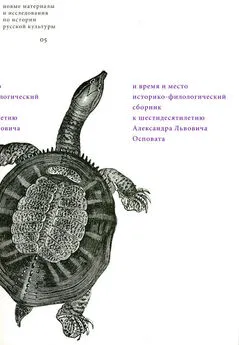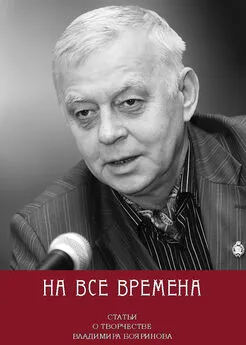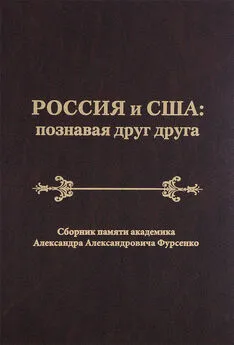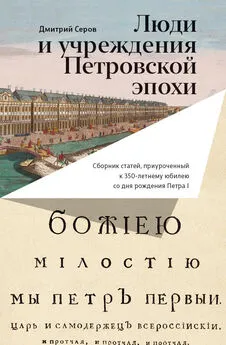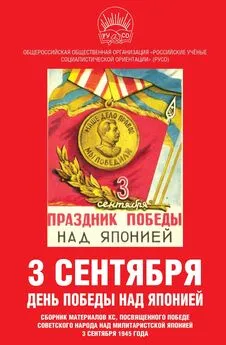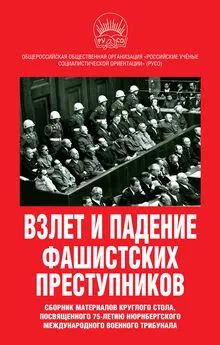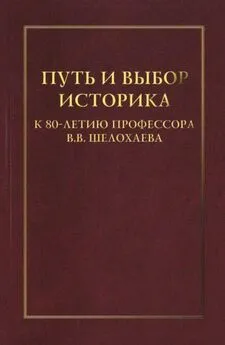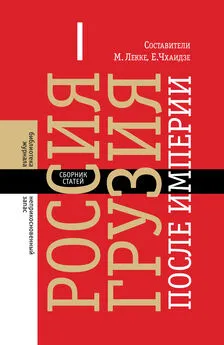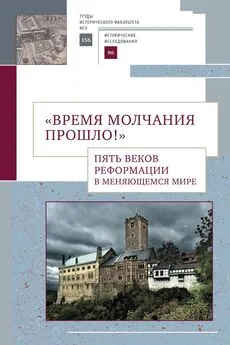Сборник статей - И время и место: Историко-филологический сборник к шестидесятилетию Александра Львовича Осповата
- Название:И время и место: Историко-филологический сборник к шестидесятилетию Александра Львовича Осповата
- Автор:
- Жанр:
- Издательство:Литагент «Новое издательство»6e73c5a9-7e97-11e1-aac2-5924aae99221
- Год:2008
- Город:Москва
- ISBN:978-5-98379-101-5
- Рейтинг:
- Избранное:Добавить в избранное
-
Отзывы:
-
Ваша оценка:
Сборник статей - И время и место: Историко-филологический сборник к шестидесятилетию Александра Львовича Осповата краткое содержание
Историко-филологический сборник «И время и место» выходит в свет к шестидесятилетию профессора Калифорнийского университета (Лос-Анджелес) Александра Львовича Осповата. Статьи друзей, коллег и учеников юбиляра посвящены научным сюжетам, вдохновенно и конструктивно разрабатываемым А.Л. Осповатом, – взаимодействию и взаимовлиянию литературы и различных «ближайших рядов» (идеология, политика, бытовое поведение, визуальные искусства, музыка и др.), диалогу национальных культур, творческой истории литературных памятников, интертекстуальным связям. В аналитических и комментаторских работах исследуются прежде ускользавшие от внимания либо вызывающие споры эпизоды истории русской культуры трех столетий. Наряду с сочинениями классиков (от Феофана Прокоповича и Сумарокова до Булгакова и Пастернака) рассматриваются тексты заведомо безвестных «авторов» (письма к монарху, городской песенный фольклор). В ряде работ речь идет о неизменных героях-спутниках юбиляра – Пушкине, Бестужеве (Марлинском), Чаадаеве, Тютчеве, Аполлоне Григорьеве. Книгу завершают материалы к библиографии А.Л. Осповата, позволяющие оценить масштаб его научной работы.
И время и место: Историко-филологический сборник к шестидесятилетию Александра Львовича Осповата - читать онлайн бесплатно ознакомительный отрывок
Интервал:
Закладка:
Another more elaborate example is the “philosophical ode” entitled “Moustaches” ( Usy ) of 1816. 15In this humorous send-up of the ultra-serious odic genre Pushkin tries on two voices, one the older Derzhavin’s, the other the hussar officer and war hero Denis Davydov’s. Davydov was renowned for his flamboyantly bushy moustaches, which he was forever twirling. The moustache was the most salient attribute of the hussar; it was as though all the hussar’s legendary daring (udaV) was located in this hirsute outgrowth, as the biblical Samson’s strength was reputed to be in his hair. The poem opens with the voice of Derzhavin warning Davydov, in the phrasing of Derzhavin’s most famous valedictory lines, that the river of time (reka vremen ) sweeps everything away in its path. Then, for the next several stanzas, the voice zone of Davydov, though still the addressee, takes over. Now we see the moustache through the eyes of its owner and his personal mythology: it is so long it wraps around his ear; it is sprinkled with rum and wine; glistening with kohl (hair crème), it has never known the razor; in the heat of battle, it helps its owner keep a cool head, as he grabs a saber in one hand and his hairy talisman in the other; and then, when more peaceful times have come, it accompanies the hussar in his conquests of the fair sex, as again one hand caresses the breast of a beauty and the other twirls the moustache. This is all very funny and very much in the spirit of hussar bravado. In the last stanza, however, as expected, there is a turn back to the viewpoint of Derzhavin, who reminds the dashing warrior and lover that his ruddy cheeks will fade, his black curls will turn grey, and – the punch line – old age will pluck out his moustaches. The point here is this is neither Derzhavin nor Davydov talking, although the recording of their voices is virtually perfect. It is Pushkin, the fledgling, who either has no moustache or only the beginning of one. He uses both voices against each other in order to assert his own, which plays behind the scenes and is present in the humor and, equally important, the implicit challenge. I see youth and age, says this voice; I am the confidence that doesn’t take sides and can make a joke out of their claims to ultimate authority.
There is one genre at which Pushkin failed miserably during these apprentice years – the love lyric – and there is good reason. Almost none of the poems he wrote about love as a teenager did he include in his first book of collected verse that appeared in 1826. However well Pushkin masters the conventional phrasing and poetic form, what is “his” cannot not yet stand out in this context. The wit that is already his trademark in his humorous verse can get no foothold in the flood of hot feelings that is adolescence. In his verses to Ekaterina Bakunina, the older sister of a classmate, his language is one-sidedly elegiac:
Итак, я счастлив был, итак, я наслаждался,
Отрадой тихою, восторгом упивался…
И где веселья быстрый день?
Промчался летом сновиденья,
Увяла прелесть наслажденья,
И снова вкруг меня угрюмой скуки тень!
[And thus, I was happy, and thus, I took pleasure
In quiet bliss, drinking ecstasy to the full…
And where now is the fleeting day’s joy?
It bas flown
It has flown by like a dream,
Pleasure’s charm has faded,
And again I am surrounded by the shadow of gloomy boredom!]
Translation: Pushkin has probably just bumped into Bakunina somewhere on the stairs and is sorting through the impressions created by this passing vision in a black dress, as he describes it in a diary entry of 19 November 1815. “How charming she was! <���… > But I have not seen her for eighteen hours – ah! What a situation, what torture – But I was happy for five minutes” (XII, 297). This poet who would write some of the most beautiful love lyrics in any language would need the ballast of lived experience to bring the conventional phrasing, the rhetorical and prosodic expectations, alive. One adjective in a normally fixed phrase would be switched, one line would break away slightly from the corset of meter to the free dance of rhythm, and the reader/listener would immediately sense that here is mature passion, passion informed by the beauty and sorrow of a fully lived life. But change the conceit of the piece from love as an elevated feeling to eros as tease and titillation, and the schoolboy was back again in his element. Here he is, for example, not describing love in an elegy but what it would feel like to be the tobacco in a pretty womans snuffbox in a madrigal:
Ax! если, превращенный в прах,
И в табакерке, в заточеньи,
Я в персты нежные твои попасться мог,
Тогда б в сердечном восхищеньи
Рассыпался на грудь под шелковый платок
И даже… может быть… Но что! мечта пустая.
Не будет этого никак.
Судьба завистливая, злая!
Ах, отчего я не табак!..
[Ah! If I, turned into dust ,
And kept in a snuff-box, in captivity,
Could land on your sweet fingers,
Then in heartfelt rapture
Would I sprinkle out onto your breast under your silk shawl
And even… perhaps… But no! It is a hollow dream
And will in no way happen.
О evil, envious Fate!
Why can’t I be tobacco!..]
At the core of the gradual change that took place in Pushkin over the Lyceum years is the fact that he never seemed to experience what might be seen from the perspective of later generations as linguistic fear. That is crucial. We also must suppose that Shakespeare, despite what little we know about him, was fearless in this way. This did not mean that words always came easily to Pushkin or that he didn’t struggle over drafts of things, which his subsequent notebooks prove beyond a doubt, but simply that he believed his language was equal to the task of saying what it needed to. His fears and anxieties were real, which is also crucial, but they were not strictly linguistic. It was the world that Pushkin looked out on from his “monk’s cell” at the Lyceum, not just the literary world, or (this would come later) the professional world of letters. It is a fine point, but a not insignificant one. This is another way of saying that if Pushkin is Russian literature’s “origin without origins,” which he is, the true beginning of the culture’s modern linguistic consciousness, which he is as well, then it is because what stirred him was not his battles with literary precursors. He knew the tradition was there and he knew it was his task to find a place in it, but his engagement was with other, bigger ghosts: his frail hold on life as a Russian in the early years of the nineteenth century, the fact that he was difficult to love and he knew it, Russian history’s claims to legitimacy against a background of European and more particularly French military and cultural domination, the heroes from the past whose spirits hung about the Cameron Gallery and the monuments to military victories. And underlying all this was a burning curiosity and impatience that was colored with superstition but not religious belief per se. Pushkin was not and never would be a confirmed unbeliever; in a world so full of charm and beauty, he could not give himself to any authority – except his poetry – completely, up to and including the ultimate authority of Russian Orthodoxy or its opposite, atheism. As he writes in the 1817 poem, “Unbelief” (Bezverie), the closest thing to a cri de cœur during the Lyceum years, “Mind seeks the Godhead, but the heart does not find it” (Um ishchet bozhestva, a serdtse ne nakhodit ) (I, 243). This does not mean that Pushkin is asserting that God does not exist, only that he, his heart, that part of him that feels, cannot find him yet in his young life. And so it would always be. As Pushkin says in a poem written several months before his death:
Напрасно я бегу к сионским высотам,
Грех алчный гонится за мною по пятам…
Так, ноздри пыльные уткнув в песок сыпучий,
Голодный лев следит оленя бег пахучий.
[In vain do I run up to the heights of Zion,
Greedy sin follows fast on my tracks…
Thus, its dusty nostrils stuck into the crumbling sand,
Does the hungry lion follow the scent of the deer.]
Note that Pushkin is painfully aware of his sin and its consequences, which presupposes not just an understanding but an acceptance of the difference between right and wrong.
Thus, and this is my principal argument in these pages, Pushkin is intensely superstitious, but not religious, in a distinctive Russian way. This superstitiousness is a trait that goes perfectly with, precisely because it is so different from, the enlightenment principles, beginning with liberté, égalité, fraternité, that he inherited at the Lyceum. Without the Lyceum Pushkin might have become another rather talented, though frivolous, versifier like his father or uncle. Without superstition (again, the “religion” of poetry, or at least his poetry) he might have become a government official, like Iakovlev, or military officer, like Matiushkin, or Decembrist, like Pushchin. The superstitious person is the card player, the gambler, which Pushkin also started to become at school. He would play cards passionately, and badly, his entire life, many times getting deeper into debt at moments when he needed money most. Superstition is the agnostic’s, not the atheist’s, religion. One follows certain rituals and procedures (recall the scene of fortune-telling that brings on Tatiana’s prophetic dream in Eugene Onegin ) just in case they might help, but not because one is certain they will. This is also how poets engage otherworldly forces, now challenging them, now coaxing them, as Pushkin also started doing in earnest at the Lyceum.
I would also argue that it was during these Lyceum years that Pushkin’s verbal role-playing became something more momentous. Now it began to involve what might be called ontological rhymes. His challenges to Derzhavin and Davydov were playful, but they had the potential to become serious, particularly if the object of the challenge was a dead authority figure. Note that Derzhavin would die within a year of his “annointing” Pushkin as his successor. In that period not only did Pushkin ventriloquize Derzhavin’s voice perfectly in Reminiscences at Tsarskoe Selo ( Vospominaniia v Tsarskom Sele, 1814), but he also managed to parody the old man’s odic sputterings in the unpublished Fonvizins Shade (Ten Fonvizina, 1815). In fact, in the latter work the playful schoolboy seemed to give his benefactor a push, claiming that Derzhavin and his fustian rhetoric had outlived their time. All this gave the generational confrontation a “ghost story” quality that appealed to Pushkin’s sense of fate, risk, chance. It was as if the mastery at one level (the first member of the rhyme pair) was so complete that it implied an act of usurpation that carried beyond the poem (the second member of the rhyme pair, i.e., the “other shoe” still waiting to drop). This was happening even as Pushkin was spouting epigrams at any and all who happened to thwart him or assert their authority over him. By taking chances, by not looking before he leapt, Pushkin learned another lesson. He came to understand that his challenges had consequences, not merely in this world, but more importantly, in the next. His acts of language became totemic, mythopoetical, capable of creating plot in life. For the shades of those who had departed (think how many ghosts and shades there are in Pushkin’s poetic world) could not stand to be mocked – there was something blasphemous in this, something that called punishment down on own’s head, which the boy also knew perfectly well. But he could not help himself from mocking, that was how he asserted himself, made a place for himself at the table.
Читать дальшеИнтервал:
Закладка:
